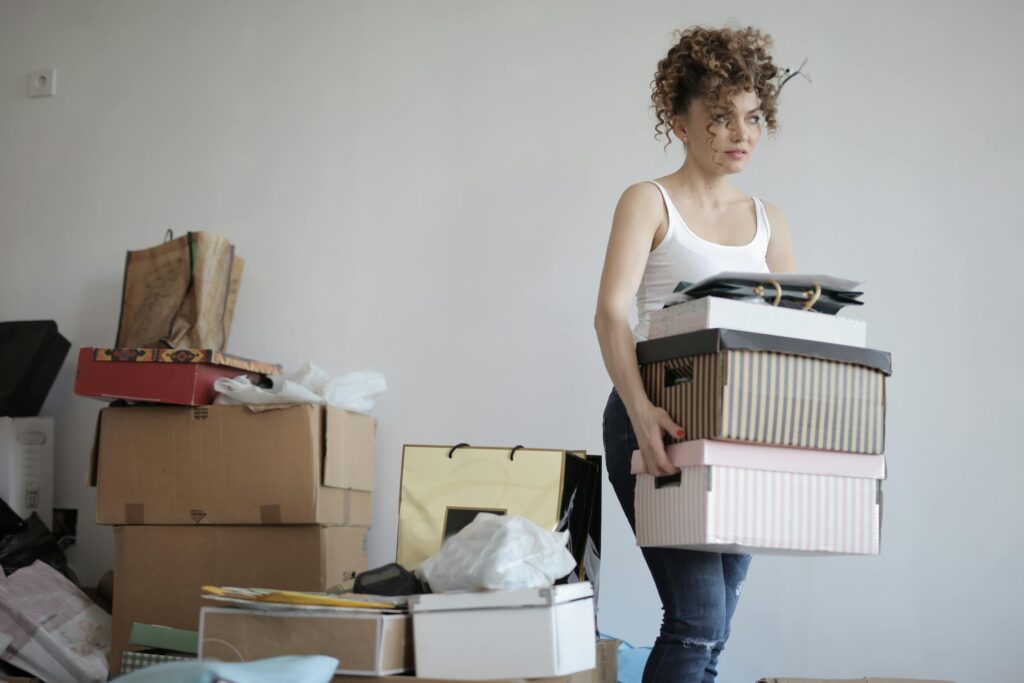
Clutter isn’t just an eyesore—it can also weigh down your finances. Many people don’t realize that their overstuffed closets, packed garages, and overflowing storage units are filled with untapped financial potential. The shift from hoarding to hustling can not only reduce clutter but can also boost your bank account. Here’s how reducing clutter can improve your financial life.
Contents
1. Turning Clutter into Cash
One of the quickest ways to see the financial benefits of decluttering is by selling unused or unwanted items. Many people hold on to things they no longer need, assuming they’ll use them someday. But in reality, these items are just taking up space and could be turned into extra cash.
- Sell Online: Platforms like eBay, Poshmark, Facebook Marketplace, and Mercari make it easy to sell clothes, electronics, furniture, and collectibles.
- Host a Garage Sale: If you have a lot to offload, a weekend yard sale can bring in quick cash while clearing out space.
- Consignment Shops: For high-end fashion, furniture, or accessories, consignment stores can help you earn money without handling the selling process yourself.
2. Lowering Stress and Avoiding Costly Purchases
A cluttered home can lead to mental clutter, increasing stress and reducing productivity. When you can’t find what you need, you’re more likely to repurchase items, wasting money on duplicates.
- Decluttering reduces decision fatigue: Studies show that an organized space helps people think more clearly and make better financial decisions.
- Eliminate unnecessary spending: Knowing exactly what you have prevents impulse purchases and unnecessary replacements.
3. Cutting Down on Storage Costs
If you’re paying for a storage unit, decluttering can save you hundreds or even thousands of dollars per year. Many people store items they rarely (if ever) use, thinking they’ll need them someday. But in reality, those fees add up over time.
- Downsize and cancel storage rentals: Sell or donate items instead of paying to store them indefinitely.
- Organize and maximize home space: With better organization, you may find that you don’t need extra storage at all.
4. Increasing Productivity and Earning Potential
A clean and organized space can directly impact productivity, especially for those working from home or running a side hustle.
- More focus, fewer distractions: A clutter-free environment allows for better concentration, making it easier to complete tasks efficiently.
- Creating space for new opportunities: By clearing out unused items, you can repurpose areas of your home into productive workspaces—whether for a side gig, home office, or rental space.
5. Donating for Tax Deductions
If you have items that aren’t worth selling but are still in good condition, donating them can provide financial benefits. Many charitable organizations provide tax-deductible receipts for donations, which can lower your taxable income.
- Goodwill, Salvation Army, and local charities: These organizations accept a wide range of household items, furniture, and clothing.
- Keep detailed records: Document your donations to maximize tax deductions.
6. Preventing Financial Burdens for Loved Ones
Hoarding doesn’t just affect the person accumulating clutter—it can become a burden for family members. Estate cleanouts can be overwhelming and expensive, so decluttering now can save your loved ones time, money, and stress in the future.
Final Thoughts: Shift Your Mindset from Hoarding to Hustling
Reducing clutter isn’t just about creating a cleaner space—it’s a strategic financial move. By selling unused items, lowering stress, eliminating storage costs, increasing productivity, and even gaining tax benefits, decluttering can transform your financial well-being. Instead of holding onto things for “someday,” consider how freeing up space today can lead to financial and personal growth.
Are you ready to reduce clutter and turn into cash? Start small, stay consistent, and watch how a tidier space leads to a wealthier mindset.





